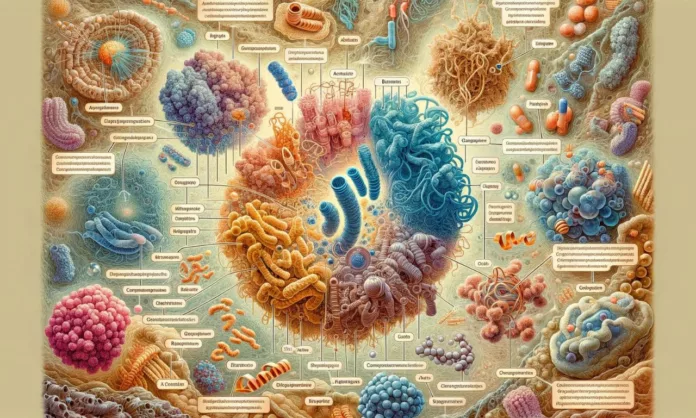Proteins are vital participants in nearly all biological functions within the organism. They are essential for the structure, function, and regulation of the body’s cells, tissues, and organs. Proteins are made up of amino acids and are involved in various functions, including catalyzing metabolic reactions, DNA replication, responding to stimuli, and transporting molecules from one location to another. However, not all bodily processes use proteins. To provide a well-researched article on this topic, we will explore the functions that proteins perform and highlight a process in the body that does not predominantly use proteins.
Table of Contents
Introduction
Proteins are complex molecules that are fundamental to our biology. They are involved in numerous processes such as muscle contraction, immune responses, and the structure of cells and tissues. Given their wide range of functions, it might seem that proteins are involved in every aspect of the body’s operation. However, there are certain processes in the body that do not primarily rely on proteins.
The Role of Proteins in the Body
Before identifying processes that do not use proteins, it’s important to understand the roles that proteins do play in the body:
- Structural Components: Proteins like collagen, keratin, and elastin provide support and structure to cells and tissues. For instance, collagen is a major component of connective tissues, while keratin is found in hair and nails.
- Enzymes: Many enzymes are proteins that catalyze biochemical reactions in the body, speeding up processes like digestion and energy production.
- Transport and Storage: Proteins such as hemoglobin transport oxygen through the blood, while others may bind and carry atoms and small molecules within cells and throughout the body.
- Immune Response: Antibodies are proteins that help identify and neutralize foreign invaders like bacteria and viruses.
- Regulation: Hormones, many of which are proteins, serve as messengers to regulate bodily functions. Insulin, for example, helps regulate glucose metabolism.
Processes Not Predominantly Using Proteins
Despite the extensive involvement of proteins in bodily functions, there are processes where proteins are not the primary actors:
- Simple Diffusion: This is a process where molecules move from an area of high concentration to an area of low concentration directly across the phospholipid bilayer of cell membranes. Simple diffusion does not predominantly use proteins, especially for nonpolar molecules like oxygen and carbon dioxide, which can diffuse directly through the cell membrane’s lipid bilayer without the aid of protein channels or carriers.
- Osmosis: Osmosis, which entails water traversing a semipermeable membrane from a region of lower solute concentration to one of higher solute concentration, is yet another biological process that does not predominantly rely on proteins. While aquaporins (a type of protein) can facilitate water movement, the basic process of osmosis can occur through the lipid portions of a cell membrane without these protein channels.
- Storage of Genetic Information: The storage of genetic information within the nucleus of a cell is primarily the function of nucleic acids (DNA and RNA) rather than proteins. While proteins play roles in the replication, transcription, and translation of genetic material, the actual storage and preservation of genetic codes are not performed by proteins.
Conclusion
While proteins are indispensable for many physiological processes, not all body functions rely on them. Processes like simple diffusion and osmosis occur with minimal to no direct involvement of proteins, and the storage of genetic information is primarily managed by nucleic acids. Understanding the roles that proteins play, and where they are not involved, is crucial for a comprehensive grasp of biological processes and the intricate workings of the human body.

